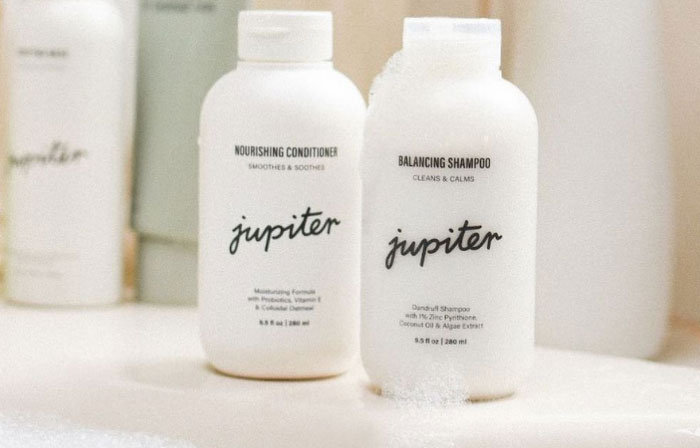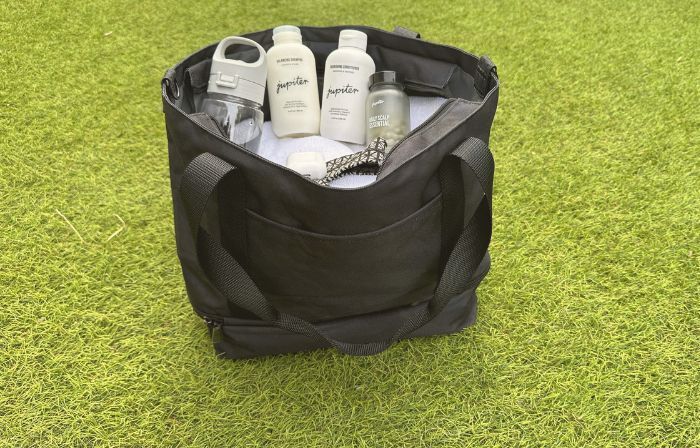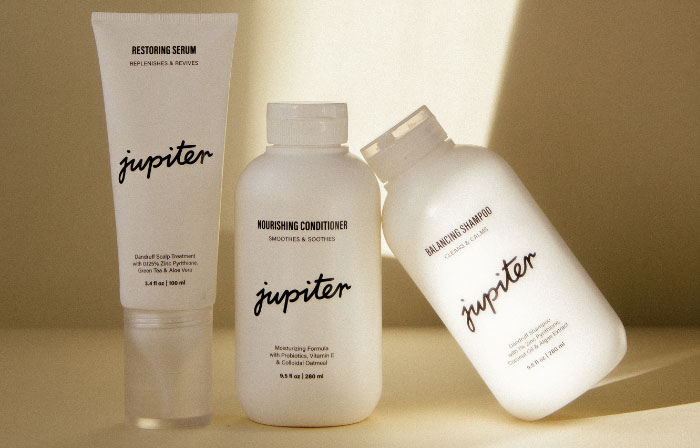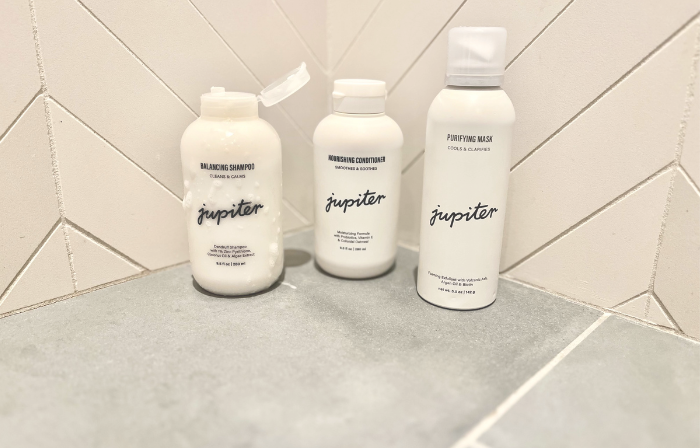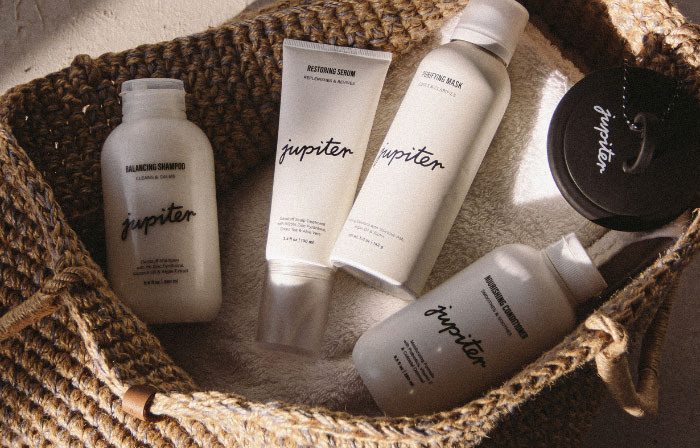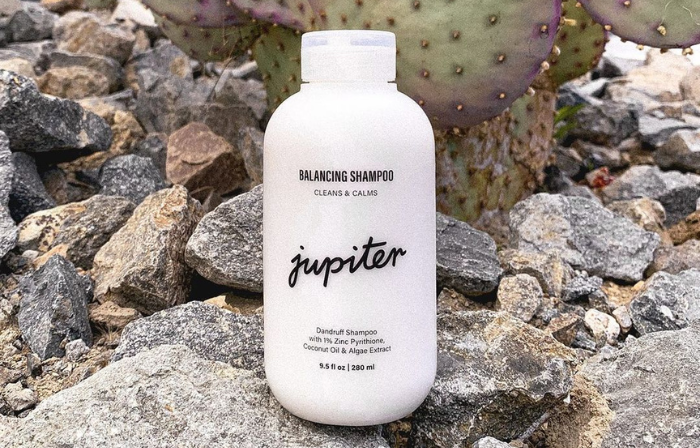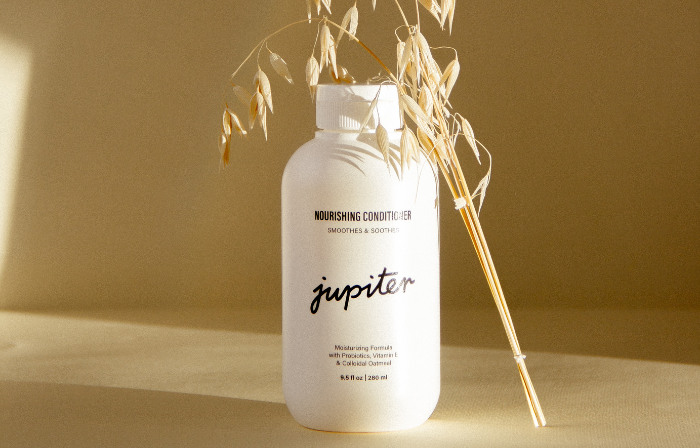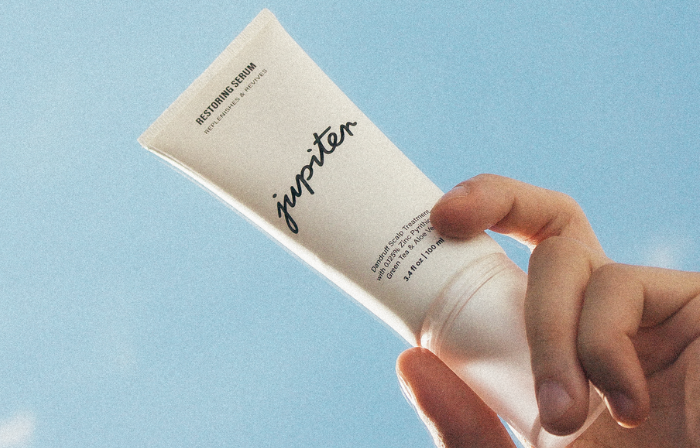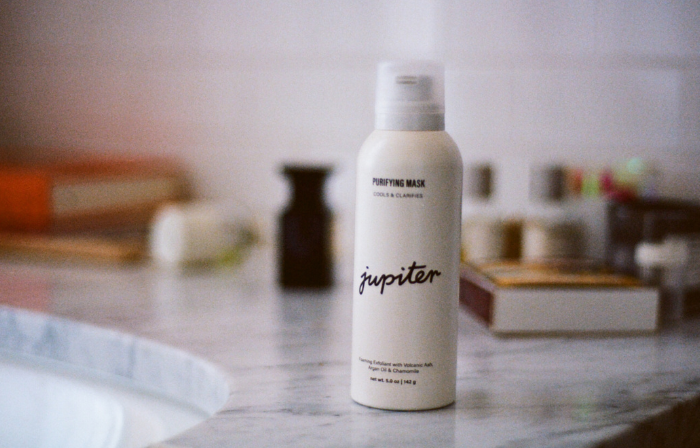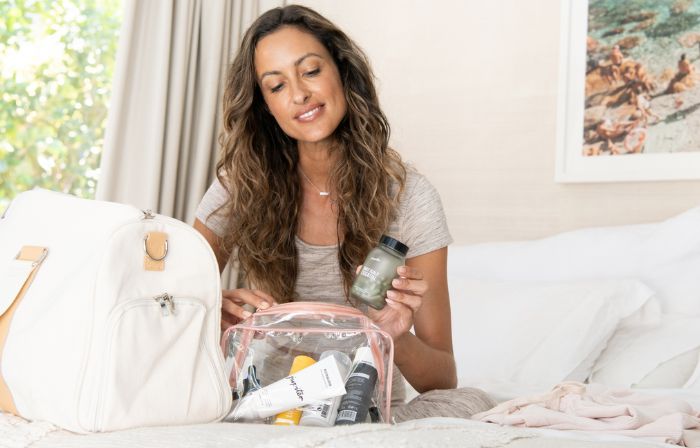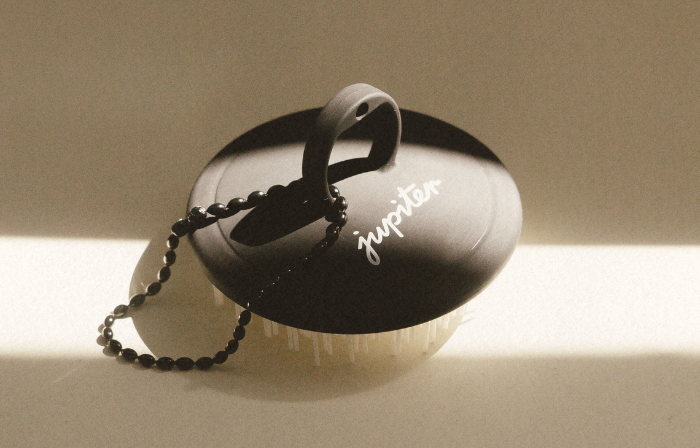🫶🏻 OUR 5% PLEDGE TO HER
#STRONGHERTHANYESTERDAY - WE DONATE 5% TO WOMEN-DRIVEN CHARITIES. LEARN MORE.
If you’re not a professional chemist, trying to be a savvy consumer these days can feel a bit overwhelming.
Pay any attention to product labels and you’ll probably see “paraben-free” splashed across the packaging of personal care products like makeup, moisturizers, lotions, and shampoos. On the flipside, if the label doesn’t make that claim, the chances are pretty good you’ll see something ending with “-paraben” in the ingredients list: methylparaben, propylparaben, isobutylparaben, and others.
Clearly, there’s a division happening in the cosmetics aisle. Parabens are one of those mysterious ingredients you might try to avoid...but are they really unsafe? And are paraben-free products any better?
In this article, we’ll break down everything you need to know about parabens: what they are, why they’re in so many cosmetic products, and what the science really says about how they can impact your health.
Parabens in Cosmetics
Parabens are a group of synthetic chemicals that have been widely used in cosmetics, cleansers, and other personal care products since the 1950s. They’re added to formulas as preservatives - to prevent the growth of bacteria, fungus, and other microbes.
This gives products a longer shelf life in the store and in your home. It’s why your deodorant, face serum, and toothpaste don’t grow fuzz - even if you let them sit open in your medicine cabinet for a year.
Preventing microbes from contaminating these products and making their way into your body is an important health and safety issue. You don’t want to end up sick from using your shampoo just as you wouldn’t want to get food poisoning from eating something expired from the back of your fridge.
The problem is that in recent years, research has started to show that parabens themselves may come with some serious health hazards. These studies were worrying enough to health officials in Canada and the European Union that they’ve since banned most parabens and put strict limits on others. Many Southeast Asian countries have banned some parabens as well.
In the US, that hasn’t happened. And not because the government or scientists believe these chemicals are safe - but because companies that sell cosmetics aren’t required to prove the safety of their products or ingredients before they’re sold.
That leaves it up to shoppers to try to figure out what’s safe, and cosmetics companies to set their own standards of what ingredients should or should not be included in their products.
Why Parabens Are Risky
Parabens can be absorbed through the skin via personal care and beauty products like lotions, deodorant, and cleansers, or get into the body through the food and medicine we consume.
Studies have shown the parabens act as endocrine disruptors, meaning they interfere with the body’s hormones. Parabens have also been shown to have estrogenic effects - they mimic the activity of the naturally occurring hormone estrogen.
This effect has been linked to a greater risk of breast cancer and creating cancer cells - and parabens have shown up in the breast tissue causing breast tumors in patients. This doesn’t directly prove that parabens cause cancer, but it has raised red flags for medical researchers, doctors and consumers who want to protect their health. Another worrisome finding is that parabens show up in human urine - further proof that these chemicals are absorbed by the human body.
Studies in both animals and humans have shown parabens can interfere with male and female reproductive systems. A 2016 Japanese study found women with higher levels of parabens in their urine had shorter menstrual cycles and reduced fertility, and a 2017 study of pregnant women in New York showed those with higher levels of propylparaben in their urine were more likely to give birth prematurely and to have babies with low birth weight. Parabens can also cause skin irritation, especially in people with sensitive skin.
To purge parabens from your personal care routine, check ingredient labels carefully and avoid anything ending in “-paraben.”
While the amount of parabens in cosmetic products and skincare products is generally small, researchers are worried about the cumulative effect of paraben exposure over time. That’s because parabens are incredibly widespread - not just in cosmetics but also in food and medicine.
Research has found that 90 percent of products in US grocery stores contain parabens. And parabens are so common in cosmetics and cleansers that many people use multiple products every day that contain them. In fact, urine sampling studies have shown that nearly all Americans test positive for parabens.
Add up the known health hazards of parabens and their widespread use in common products, and the picture seems pretty risky. That’s led many people to play it safe by reducing their exposure to these chemicals by seeking out “paraben-free” products.
What to Look For on The Label
To purge parabens from your personal care routine, check ingredient labels carefully and avoid anything ending in “-paraben.” The most common ones are methylparaben, ethylparaben, propylparaben, butylparaben, isobutylparaben, and isopropylparaben.
Propylparaben and butylparaben have stronger estrogenic effects in the body. They are thought to be especially harmful for breast cancer risk, and are more likely to cause skin irritation.
Parabens & Scalp Care
If you’re experiencing dandruff, you’ve probably experimented with the mainstream treatment products available in the hair care aisle. Nearly all of these products are likely to contain parabens. (Don’t take our word for it - check the labels!)
Because of the long-term health risks, we don’t think parabens belong in any personal care products. And their potential to irritate the skin means they especially don’t belong in dandruff shampoos and moisturizing conditioners.
Dandruff’s notorious symptoms - flaking and itching - happen because your scalp is irritated. So the last thing you want to use to treat dandruff is something with the potential to cause more irritation.
Your dandruff shampoo needs to draw on the power of safe skin-soothing ingredients to calm irritation, and the dandruff-fighting active ingredient Zinc Pyrithione. Synthetic preservatives like parabens are definitely not part of this picture.
Go Paraben-Free - and Flake-Free, Too
Banishing dandruff flakes and itching shouldn’t mean compromising your long-term health. That’s why every Jupiter product is free from parabens, sulfates, phthalates, artificial fragrances, dyes, and other unsafe ingredients. But you need more than just safe hair and scalp care. You need effective dandruff care products that actually work, with anti-dandruff ingredients like Zinc Pyrithione that are approved by the Food and Drug Administration (FDA). With Jupiter's dandruff care products you get it all. That means an elevated, spa-quality experience, with nourishing ingredients like lavender, coconut oil, spearmint, and the powerful active ingredient needed to fight flaking.
Learn more about how Jupiter kicks dandruff to the curb while making your scalp look and feel amazing.
